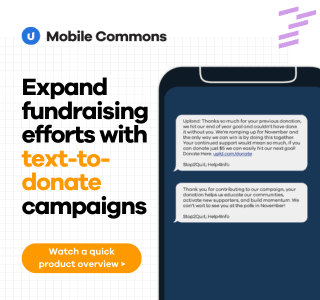There has to be a better way. That’s the consensus among American healthcare consumers, who perceive their doctors as behind the times when it comes to their willingness to embrace digital communication technologies like text messaging.
Digital technologies, patients note, are widely used in almost every other industry to facilitate transactions and make processes more efficient. If utility companies can send text message reminders about upcoming bills, and airlines can send boarding passes to their passengers’ mobile phones, why are physicians still faxing and printing? Wouldn’t a simple text—at least in some situations—save not only time, but also paperwork?
Consumers want more communication options
 One recent survey revealed that 49 percent of Americans arrived at their doctor’s office earlier than scheduled just to ensure they left enough time to fill out and sign all of the required forms. The lengthy written intake procedure was “frustrating,” respondents said, and felt comparable to what they’d go through if they were buying a new car.
One recent survey revealed that 49 percent of Americans arrived at their doctor’s office earlier than scheduled just to ensure they left enough time to fill out and sign all of the required forms. The lengthy written intake procedure was “frustrating,” respondents said, and felt comparable to what they’d go through if they were buying a new car.
The same survey, conducted by Kelton Global and commissioned by Surescripts, showed that patients would like the option of communicating with their providers via email or text instead of phone only. If they could, they said, they’d feel “less rushed” than they do when they have to talk on the phone and would ultimately be “more comfortable” and “far more open” with their doctors.
Tom Skelton, CEO of Surescripts, says that the survey shows patients “are ready for a change.” Inadequate exchange of health information between patients and their doctors—and between providers themselves—is not only frustrating but also “dangerous,” he said, and “can easily be solved through the use of digital communications and technology.”
Modernizing healthcare communication
 Other recent surveys have reached similar conclusions about the state of healthcare communication. “Americans increasingly use electronic tools in nearly every other aspect of their lives,” reads one report by the Council of Accountable Physician Practices (CAPP) and the Bipartisan Policy Center (BPC). “It’s time to bring the U.S. health care system into the 21st century.”
Other recent surveys have reached similar conclusions about the state of healthcare communication. “Americans increasingly use electronic tools in nearly every other aspect of their lives,” reads one report by the Council of Accountable Physician Practices (CAPP) and the Bipartisan Policy Center (BPC). “It’s time to bring the U.S. health care system into the 21st century.”
In fact, while more than 90 percent of American adults own a mobile device capable of text messaging, the CAPP/BPC survey found that less than 10 percent of patients have access to digital health services like SMS appointment and medication reminders. Even worse: Patients with significant disease burdens—conditions like heart disease, cancer, and diabetes—have less access to text message reminders than the general population.
Like the Kelton Global survey, the CAPP/BPC survey found that an increasing number of patients would like to see their healthcare organizations use text messaging in situations where it might make communication more convenient. Patients already use the technology in their daily lives; they’re ready to use it to improve their health as well.
Using text messaging to improve outcomes and access to care
 When healthcare organizations adopt text messaging into their communications strategy, they typically see an immediate improvement in outcomes. Blood Systems saw a 57 percent increase in response rates from blood donors who received text message reminders compared to those who received phone calls. And not only that, donors who received text messages were also 28 percent more likely to confirm their appointments, and 80 percent likely to reschedule if they couldn’t make their appointments.
When healthcare organizations adopt text messaging into their communications strategy, they typically see an immediate improvement in outcomes. Blood Systems saw a 57 percent increase in response rates from blood donors who received text message reminders compared to those who received phone calls. And not only that, donors who received text messages were also 28 percent more likely to confirm their appointments, and 80 percent likely to reschedule if they couldn’t make their appointments.
The bottom line is that digital tools like text messaging improve healthcare access, boost patient satisfaction, and help facilitate care coordination. Yes, there are certain challenges, particularly regulatory barriers and resistance from physicians, that the healthcare industry will have to overcome if widespread adoption of texting and other technologies is to become a reality. But the benefits of digital communication far outweigh any drawbacks. As Julia Hallisy, DDS, President of the Empowered Patient Coalition, commented on the Surescripts survey, what patients really want is to be involved in their care. These technologies, she said, are “an important tool to help healthcare delivery become more efficient and truly patient-centered.”
To learn more about how text messaging can improve patient outcomes, download our eBook on patient engagement . Interested in launching your own text messaging program? Contact us.


